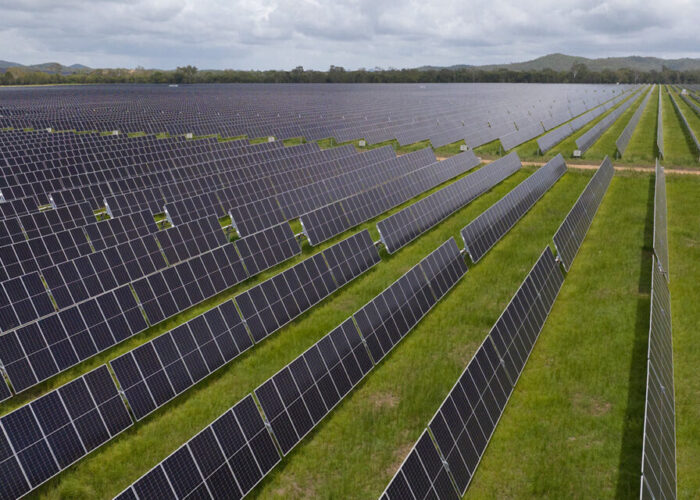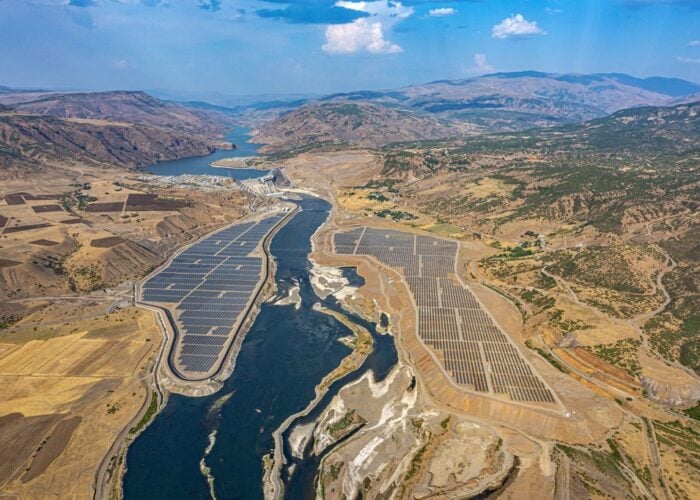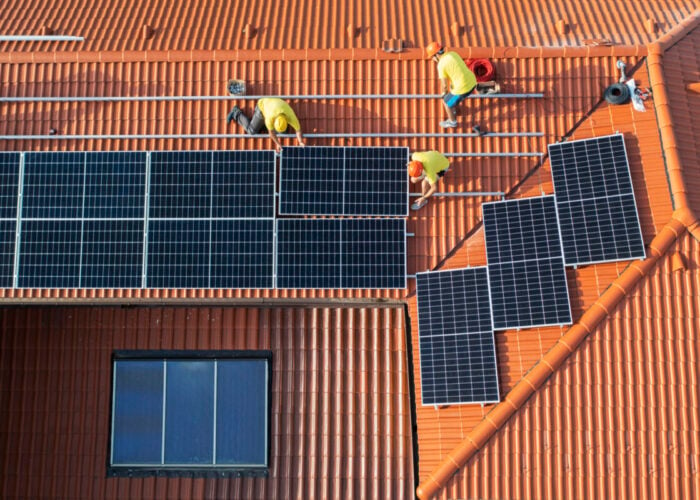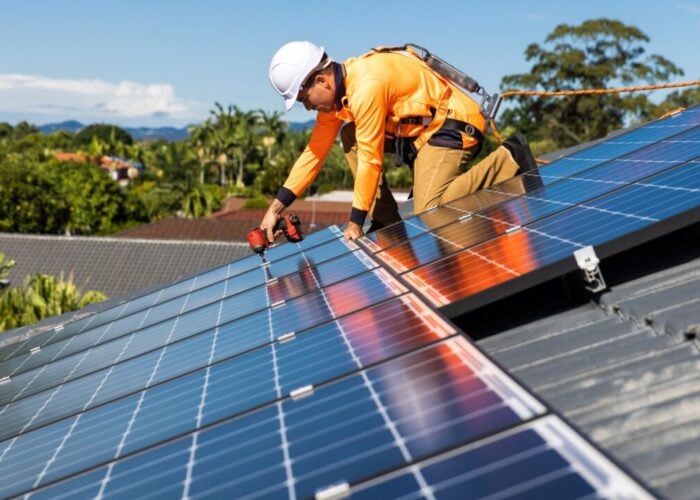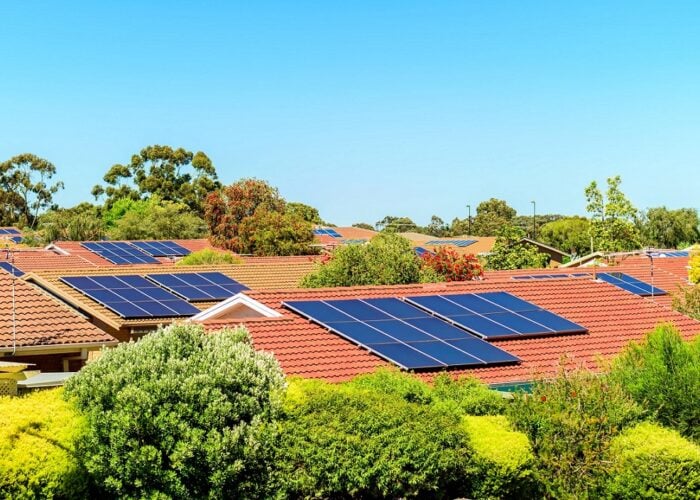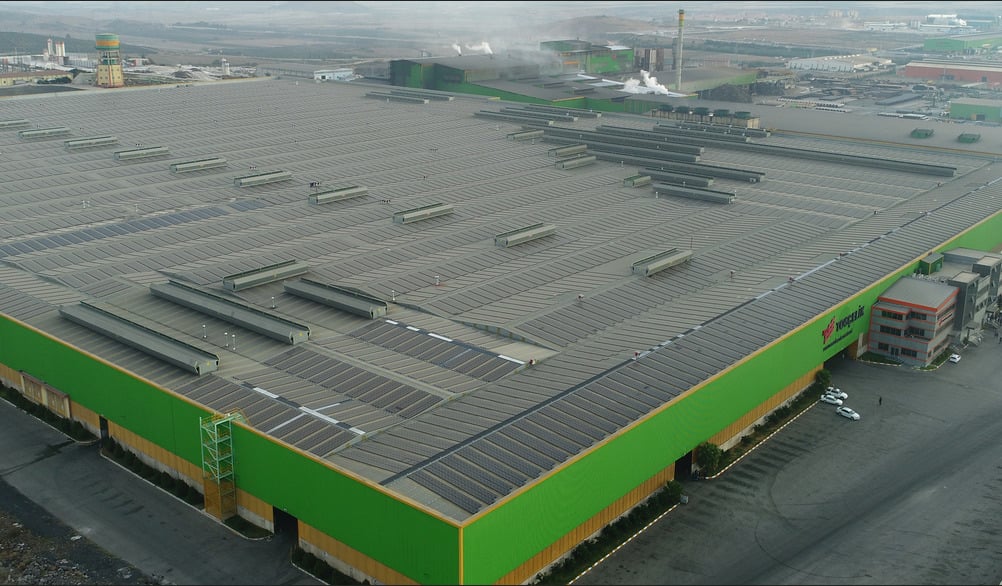
Turkey’s technical rooftop solar potential could reach 120GW, covering 45% of the country’s total electricity consumption, according to a report from energy think tank Ember.
The report states that Turkey’s rooftop solar potential is close to ten times its current installed solar capacity, except provinces hit by an earthquake earlier this year. The most populous provinces in Turkey boast the highest solar capacity potential, as Istanbul is the province boasting the highest rooftop solar potential with an estimated production capacity of 10.4 GW, followed by Ankara (10.1GW) and Izmir (9.3GW).
Unlock unlimited access for 12 whole months of distinctive global analysis
Photovoltaics International is now included.
- Regular insight and analysis of the industry’s biggest developments
- In-depth interviews with the industry’s leading figures
- Unlimited digital access to the PV Tech Power journal catalogue
- Unlimited digital access to the Photovoltaics International journal catalogue
- Access to more than 1,000 technical papers
- Discounts on Solar Media’s portfolio of events, in-person and virtual
The report also studies the potential of flat rooftops and pitched rooftops. In the flat rooftop category, Izmir ranks first in flat roofs (6.7GW) out of the total potential of 61.7GW in the country, followed by other metropolitan cities Istanbul (4.7GW), Ankara (4.7GW) and Bursa (3.3GW).
Flat roofs can usually be found in industrial facilities. Therefore, industrial provinces such as Kocaeli (2.5GW), Manisa (3.1GW) and Tekirdağ (1.9GW) rank behind large provinces in flat roof potential despite not being as populous.
Outside of the major cities of Istanbul, Izmir and Ankara, Konya stands out in terms of its high potential from flat roofs with an estimated capacity of 3.3GW, as the city’s yearly total solar PV electricity potential reaches 1,637 kWh/kWp.
Regarding pitched roof potential, Istanbul (5.7GW) and Ankara (5.5GW) hold the highest shares in the country’s pitched roof potential of 58.9GW. Ember states in the report that the building types where households live affect the results since multi-story apartment buildings generally have flat roofs, and single-storey and detached houses have pitched roofs.
Antalya is Turkey’s fifth most populous city, where 75% of the population is concentrated in multi-storey apartment buildings. As a result, Antalya does not rank among the top ten in pitched roof potential. Afyon province ranks fourth (2.8GW) in the pitched roof category, as more than half of the population in the province lives in buildings with two or fewer floors.
Electricity consumption
The rooftop solar potential of 120GW can cover 45% of Turkey’s electricity consumption in 2022. With its annual production potential of 11.4TWh, Istanbul is behind Ankara (12.5TWh) and Izmir (12.4TWh). Konya (8.6TWh) follows the three major provinces, followed by Manisa (6.4TWh), Bursa (5.4TWh), Afyon (5.3TWh) and Balıkesir (4.7 TWh).
The other two provinces in the top 10 regarding electricity production are Antalya (5.5TWh) and Muğla (4.5 TWh) thanks to their high solar potential.
The study also examines the ratio of rooftop solar power generation potential to billed electricity consumption by province. Major northern cities which are less sunny such as Istanbul (27%) and Bursa (42%) have a relatively lower solar generation potential.
Despite its southern location, Antalya has a ratio of 59% only due to the low suitability rate of its roofs. On the contrary, metropolitan cities like Konya (113%), Ankara (88%) and Izmir (76%) have significant rooftop solar generation potential relative to their billed electricity consumption.
Status of solar in Turkey
In the first half of 2023, the share of solar generation in Turkey increased to 5.7% compared to the same period last year. But Turkey still lagged behind Poland (6.6%) – a northern country compared to Turkey – which had a share of solar electricity production below 1% back in 2019.
As of November 2023, Turkey added a new solar capacity of 1.8GW, bringing the total solar installed capacity to 11.2GW.
Lastly, the report adds that residential consumers will face several difficulties if they want to install rooftop solar systems, including a lengthy bureaucratic process which can take as many as 27 weeks to complete residential rooftop solar systems from application to installation.
Approval must be obtained from different organisations, such as the distribution company responsible for the region where the system will be installed, the transmission system operator Turkish Electricity Transmission Corporation (TEİAŞ), the General Directorate of Energy Affairs, the distribution system operator Turkish Electricity Distribution Corporation (TEDAŞ) and universities.
In October, Turkish energy minister Alparslan Bayraktar said Turkey will need to install 5GW of solar and wind capacity every year until 2035. PV Tech Premium recently talked to different experts, examining the feasibility of this target. Rystad Energy analyst Nishant Kumar said the goal was certainly “ambitious in the short term by 2027, but achievable in the medium (post-2027) and long run (post-2032)”.
One of the major challenges in the Turkish solar market is the availability of necessary infrastructure, as the grid must be able to handle the influx of renewable energy, according to Turkish inverter manufacturer Solplanet.


